Menu

THE BLACKSMITH
MORITAKA HAMONO
- Choosing a selection results in a full page refresh.




















Usually ready in 1 hour
| Blade Length | 240 mm |
| Total Length | 390 mm |
| Steel Type | Aogami Super (Iron Clad) |
| Handle Material | Walnut |
| Ferrule | Black Pakka Wood |
| HRC (Rockwell) | 63 |
| Spine Thickness | 2.5 mm |
| Height Spine to Heel | 48 mm |
| Weight | 167 grams |
| Bevel | Double |
Moritaka Hamono
Moritaka Hamono was founded in 1293 during the Kamakura period by Kongohyoe Minamoto no Moritaka, who was the head swordsmith for the Buddhist priests at Mt. Homan in Dazaifu, Fukuoka. His descendants then followed in his footsteps in the same city for 13 generations. In 1632, the family followed the Higo Daimyo Mitsunari Hosokawa (The feudal ruler of the Higo region) and moved to Miyaji-machi, Yatsushiro City in Kumamoto. For another 13 generations in this city, they forged swords for Buddhist armies, the Daimyo's army, and also for the Daimyo himself. Moritaka swords were unique because they were made and used to help attain Buddhahood. Five generations ago, master swordsmith Chuzaemon Moritaka decided to expand and apply their forging techniques to kitchen knives. Since then they’ve been dedicated to producing a large variety of kitchen knives and edged gardening tools for agricultural use and forestry.
Moritaka Hamono knives are known for their rustic aesthetic, having clad their knives in soft iron, with an Aogami Super core steel. The blacksmith finish or kurouchi is distinctly rough, and the warikomi technique, where the core steel is folded into a single piece of soft iron, is a traditional practice, as opposed to sanmai, which uses two separate pieces of soft metal as the cladding. Since Moritaka Hamono employs more traditional knife-making techniques, their production is limited to smaller batches, as they like to honour their inherited methods. Their blades are heat treated to approximately 64 HRC and have a midweight profile, mostly holding their width down towards the edge. Notably at the tang, Moritaka Hamono has developed a unique feature, where despite having an iron clad/carbon core steel knife, the tang area is protected in stainless steel, hence the change in colour – to prevent rust around the handle area, and prevent the tang from rusting inside the handle.
The Knife
The gyuto is the Japanese equivalent to the western styled chef knife. Equally as versatile and capable however not always, but usually featuring a flatter profile. This knife is a great example of that flatter profile make it excellent at smaller slicing tasks as well as having a very usable tip.
*Suitable for right and left handed users
Follow these care recommendations for your Japanese knives to protect the edge and keep them sharp as long as possible:
All products are shipped within 24 hours. We offer same day shipping for products ordered by 12pm. Please allow 4-7 business days for your shipment to arrive with standard shipping. Expedited shipping options are also available at checkout.
We offer free shipping on orders within Canada over $150 CAD and free shipping on orders to the US over $200 USD.
Curbside pick-up is available at both our Hamilton and Etobicoke locations.
To make sure our customers are always satisfied, we offer full refunds on products for 14 days after receiving them. See our full return policy for details.
More questions? Check out our shipping policy, our return policy, or reach out to us directly.
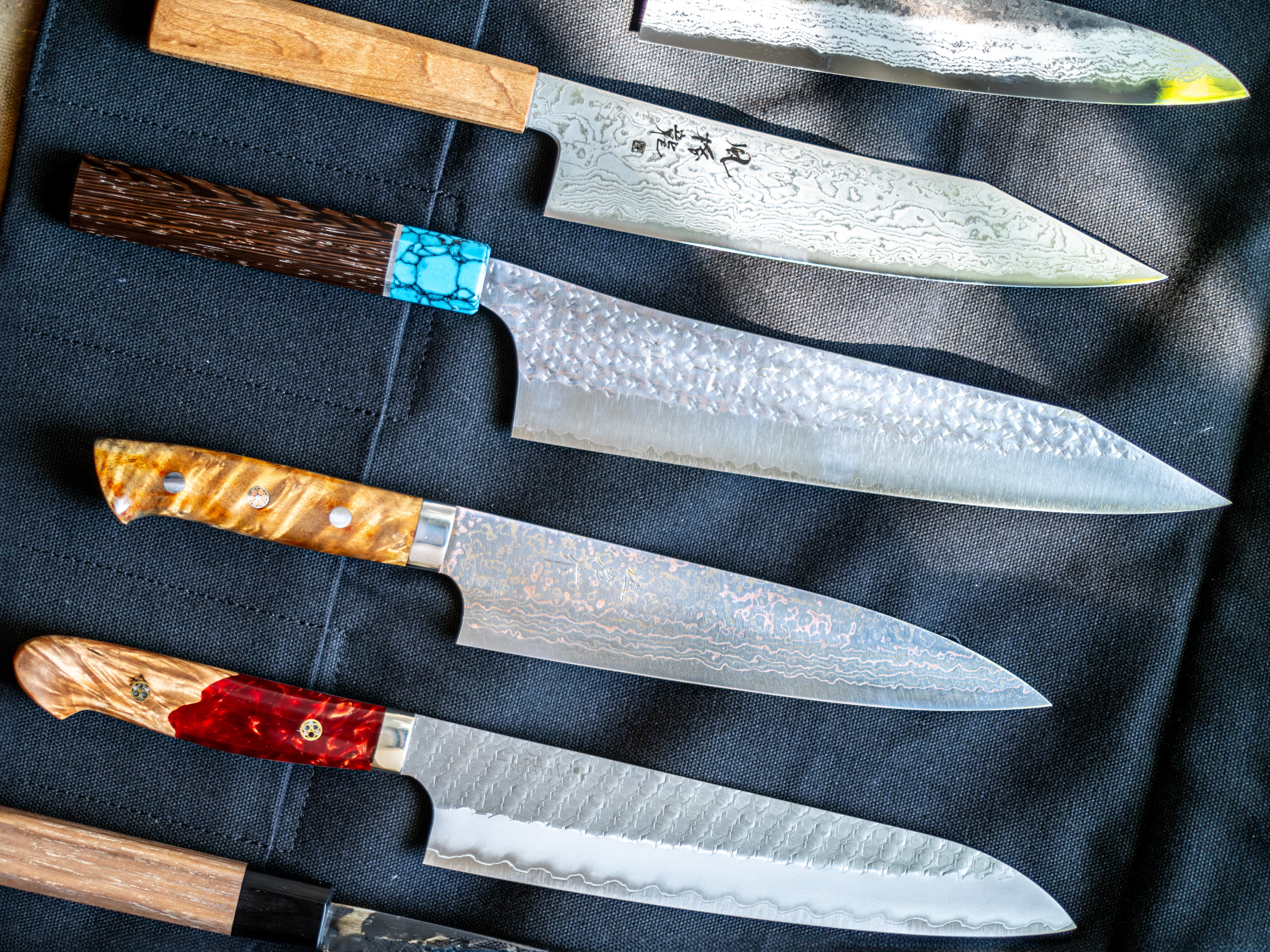
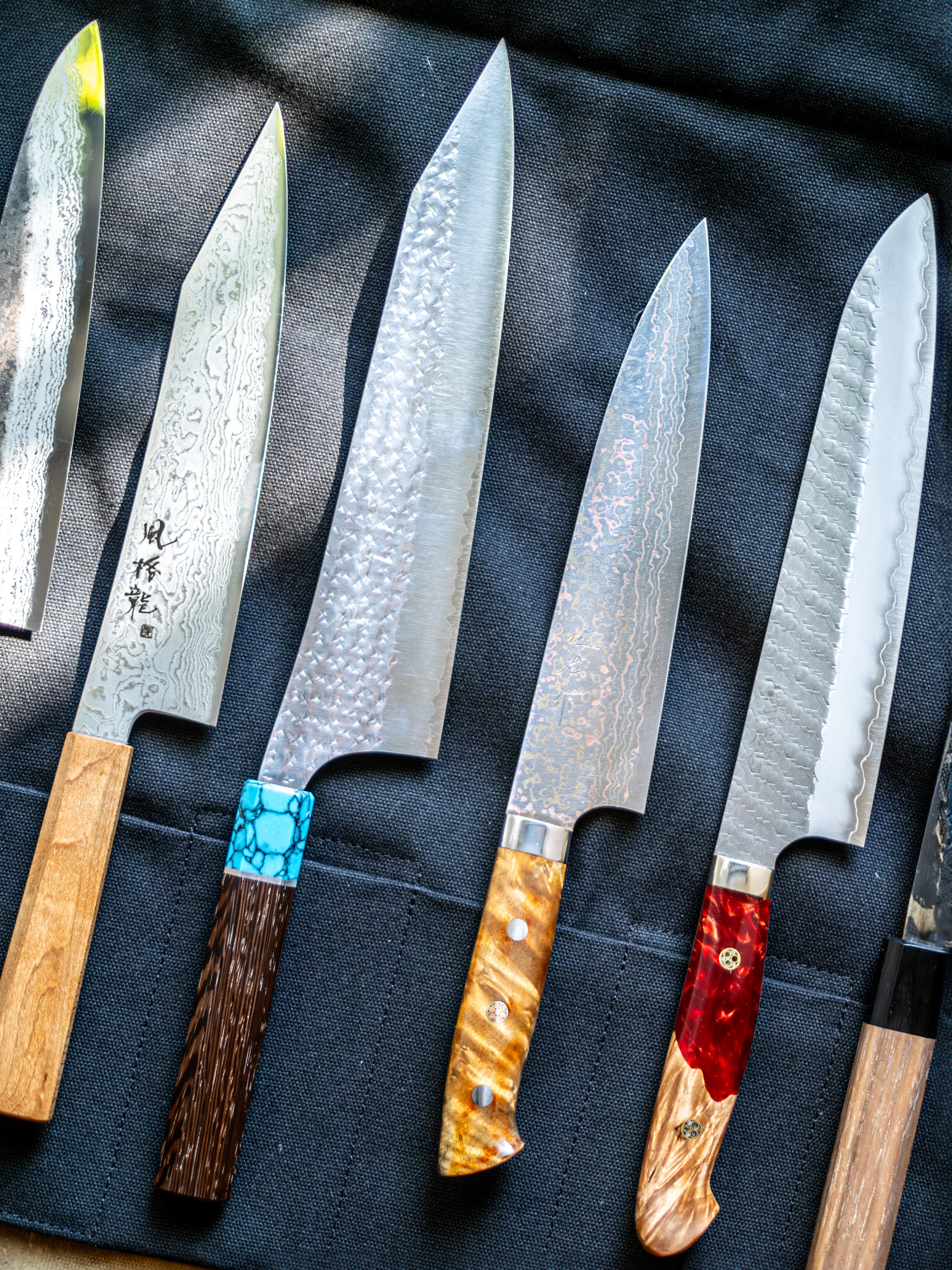
The Gyuto is the Japanese equivalent to the western style chef’s knife and is without question the most versatile knife shape. It ranges in size from 180 mm (7 inches) to 240 mm (10 inches), making it longer than the Santoku and Bunka. This length makes it adept at handling almost any task you'll come across in the kitchen, from mincing small ingredients to chopping through larger fruits and vegetables. The longer the knife, the more time it will take to grow accustomed to its length, but the more versatile it will be.
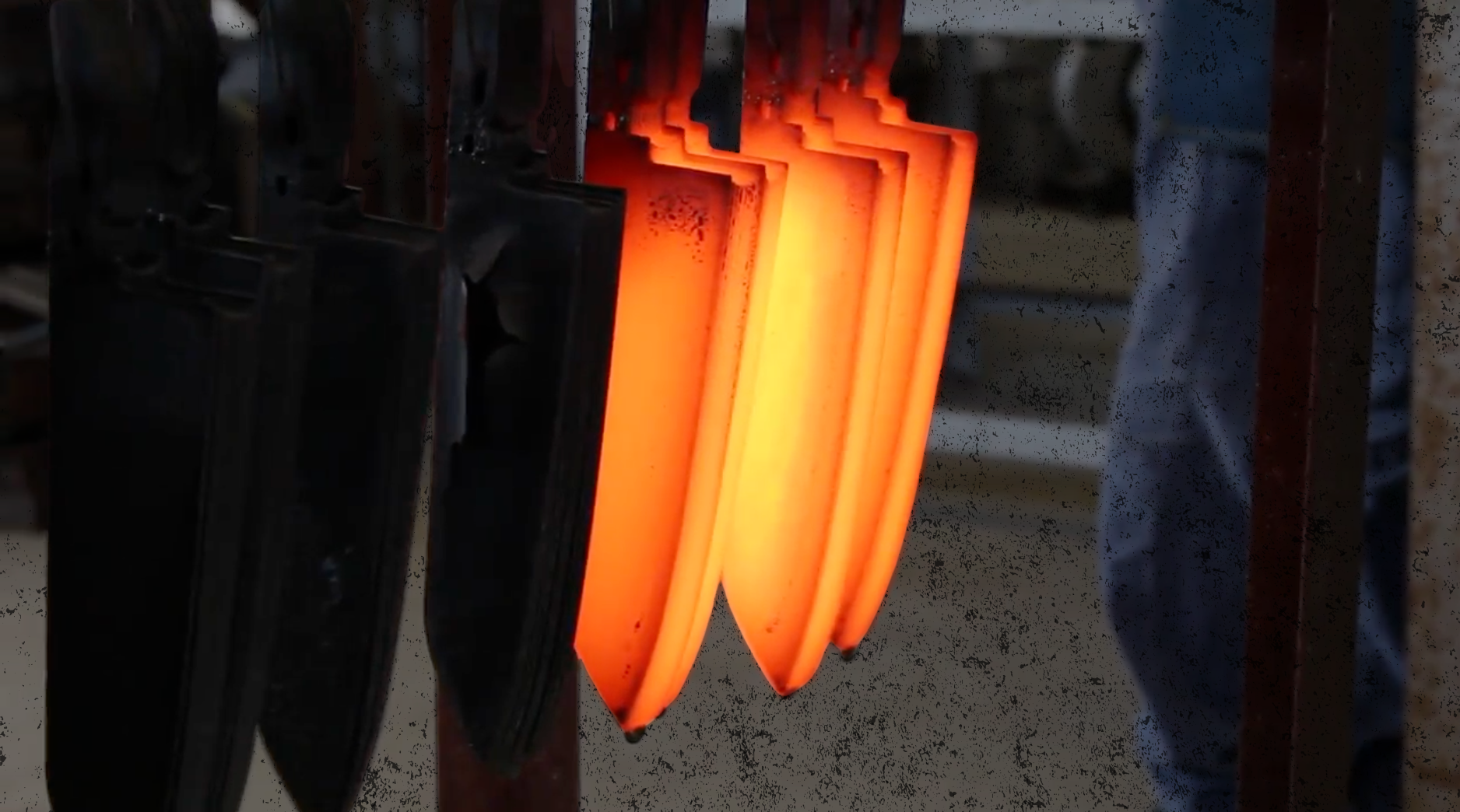
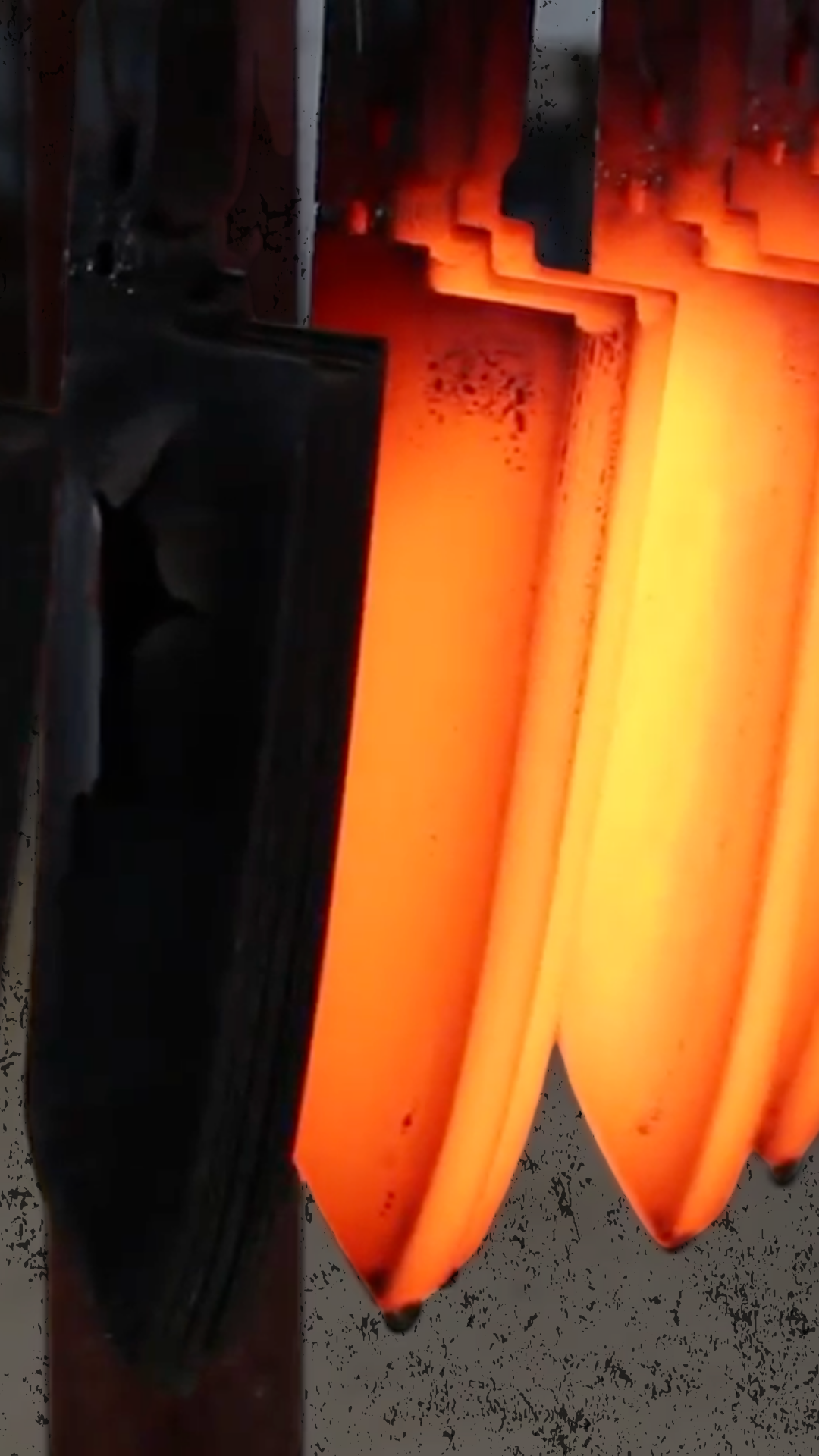
AKA Blue Super: This steel is considered by many to be the best carbon steel available for knife making. Containing elevated levels of carbon, chromium and tungsten and with the addition of molybdenum it is easy to sharpen, gets super sharp, is less reactive to rust, and is less brittle (compared to other carbon steels).
Chemical Composition:
C 1.4-1.5% | Cr 0.3-0.5% | W 2.0-2.5% | Mo 0.3-0.5% | V 0.5%
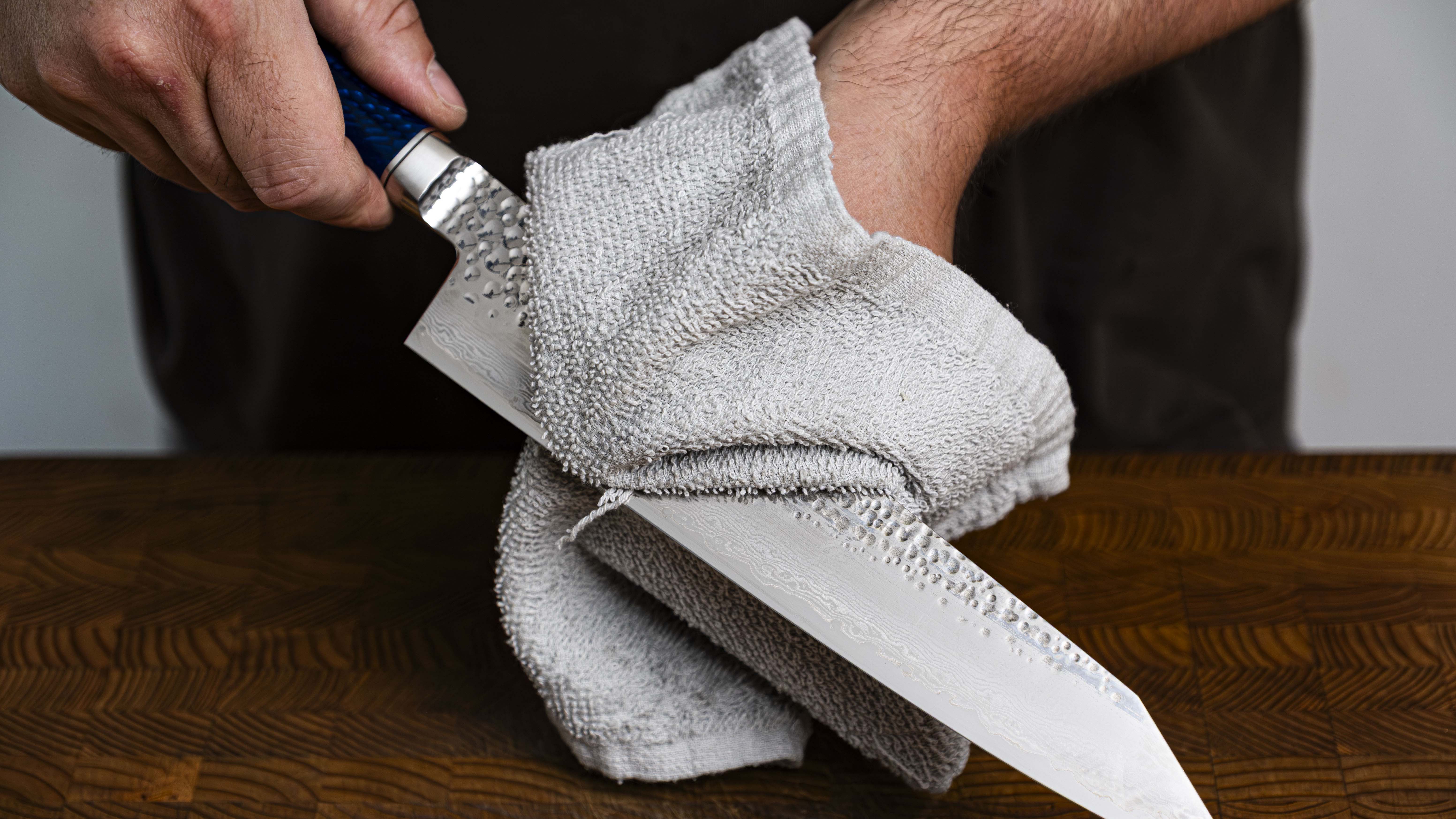
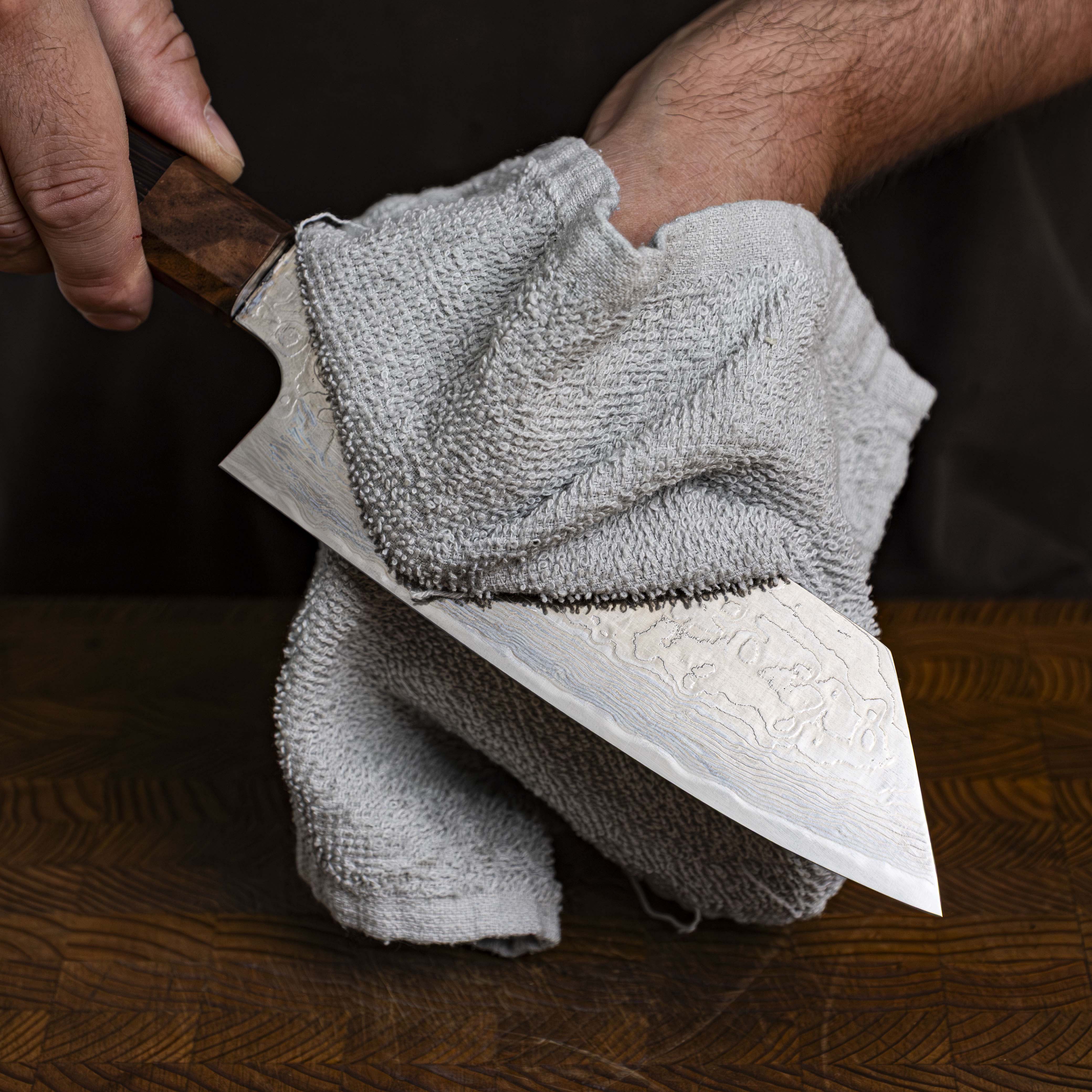
HIGH MAINTENANCE
Iron clad knives are composed of three layers of material: iron coating the outside with carbon steel inside. All layers are susceptible to rust and discolouration, so they must be kept dry and clean by wiping them down immediately after use. They will develop a patina (a darkening of the steel; blue, dark grey, and sometimes black colouration of the blade) no matter how well they are cared for. Iron clad knives are great for those who plan to thin and polish their blades, as iron is much easier to work with than stainless steel.

Moritaka Hamono was founded in 1293 during the Kamakura period by Kongohyoe Minamoto no Moritaka, who was the head swordsmith for the Buddhist priests at Mt. Homan in Dazaifu, Fukuoka. His descendants then followed in his footsteps in the same city for 13 generations. In 1632, the family followed the Higo Daimyo Mitsunari Hosokawa (The feudal ruler of the Higo region) and moved to Miyaji-machi, Yatsushiro City in Kumamoto. For another 13 generations in this city, they forged swords for Buddhist armies, the Daimyo's army, and also for the Daimyo himself. Moritaka swords were unique because they were made and used to help attain Buddhahood. Five generations ago, master swordsmith Chuzaemon Moritaka decided to expand and apply their forging techniques to kitchen knives. Since then they’ve been dedicated to producing a large variety of kitchen knives and edged gardening tools for agricultural use and forestry.
